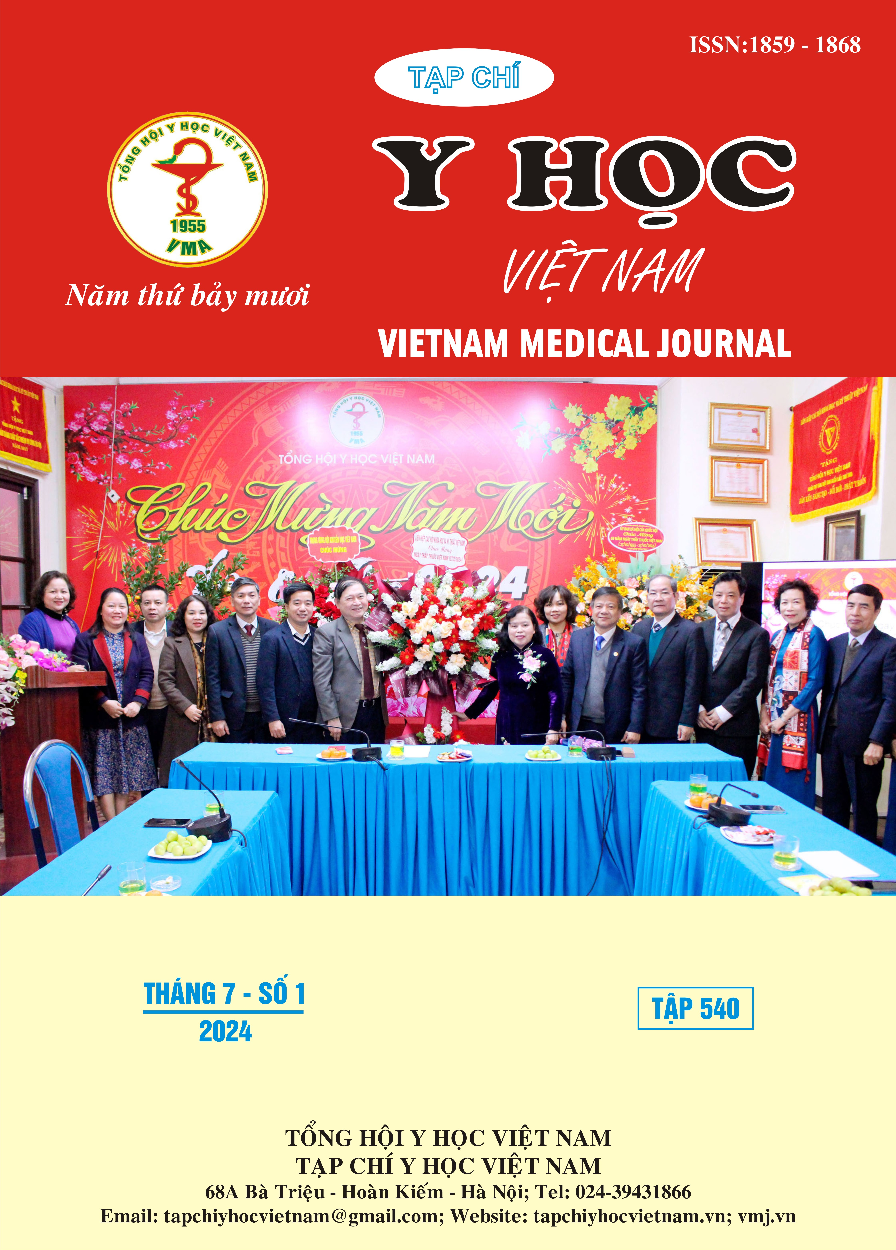INVESTIGATION OF SLEEP QUALITY IN PATIENTS AFTER RECOVERY FROM COVID-19 AND SOME RELATED FACTORS
Main Article Content
Abstract
Objective: we aimed to investigate characteristics of sleep quality disorder and some related factors in patients after recovery from COVID-19 who examined at Military Hospital 103. Subjects and methods: a total of 111 wealthy patients History of being diagnosed with COVID-19 was collected at the Department of Functional Diagnostics, Military Hospital 103 from February 2022 to May 2022. The patient's sleep quality was assessed using the Pittsburgh Sleep Quality Index (PSQI). Pearson’s correlation or Independent Samples T-Test is used to evaluate the relationships between PSQI scores with age, height, weight, BMI, time after COVID-19 infection, smoking status, and drinking habit of the patients. Results: The proportion of patients with sleep quality disorders was 55%. The group of subjects who smoked had a statistically significant increase in sleep latency score as compared to the group who did not smoke. Similarly, the group of subjects who drank alcohol showed a significantly higher sleep duration score when compared to the group of subjects who did not drink alcohol. Conclusion: The proportion of sleep quality disorders in subjects after recovery from COVID-19 infection was 55%. Smoking and alcohol use are risk factors for increased sleep quality disorders in people after recovery from COVID-19 infection.
Article Details
Keywords
Sleep quality, influencing factors, after Covid-19 infection, PSQI
References
2. Munteanu I, Marc M, Gheorghevici C, Diaconu GA, Feraru N, Sion D, Nemes RM, Mahler B. Sleep Quality Aspects in Post-COVID-19 Patients. J Pers Med. 2023. 13(7):1125.
3. Seighali N, Abdollahi A, Shafiee A, Amini MJ, Teymouri Athar MM, Safari O, Faghfouri P, Eskandari A, Rostaii O, Salehi AH, Soltani H, Hosseini M, Abhari FS, Maghsoudi MR, Jahanbakhshi B, Bakhtiyari M. The global prevalence of depression, anxiety, and sleep disorder among patients coping with Post COVID-19 syndrome (long COVID): a systematic review and meta-analysis. BMC Psychiatry. 2024. 24(1):105.
4. Medic G, Wille M, Hemels ME. Short- and long-term health consequences of sleep disruption. Nat Sci Sleep. 2017.9:151-161.
5. Garbarino S, Lanteri P, Bragazzi NL, Magnavita N, Scoditti E. Role of sleep deprivation in immune-related disease risk and outcomes. Commun Biol. 2021.4(1):1304.
6. Buysse DJ, Reynolds CF 3rd, Monk TH, Berman SR, Kupfer DJ. The Pittsburgh Sleep Quality Index: a new instrument for psychiatric practice and research. Psychiatry Res. 1989.28(2):193-213.
7. Van Nguyen T, Liu HE. A cross-sectional study on sleep disturbances and associated factors among nurses. BMC Psychiatry. 2022. 22(1):119.
8. Tedjasukmana R, Budikayanti A, Islamiyah WR, Witjaksono AMAL, Hakim M. Sleep disturbance in post COVID-19 conditions: Prevalence and quality of life. Front Neurol. 2023. 13:1095606.


